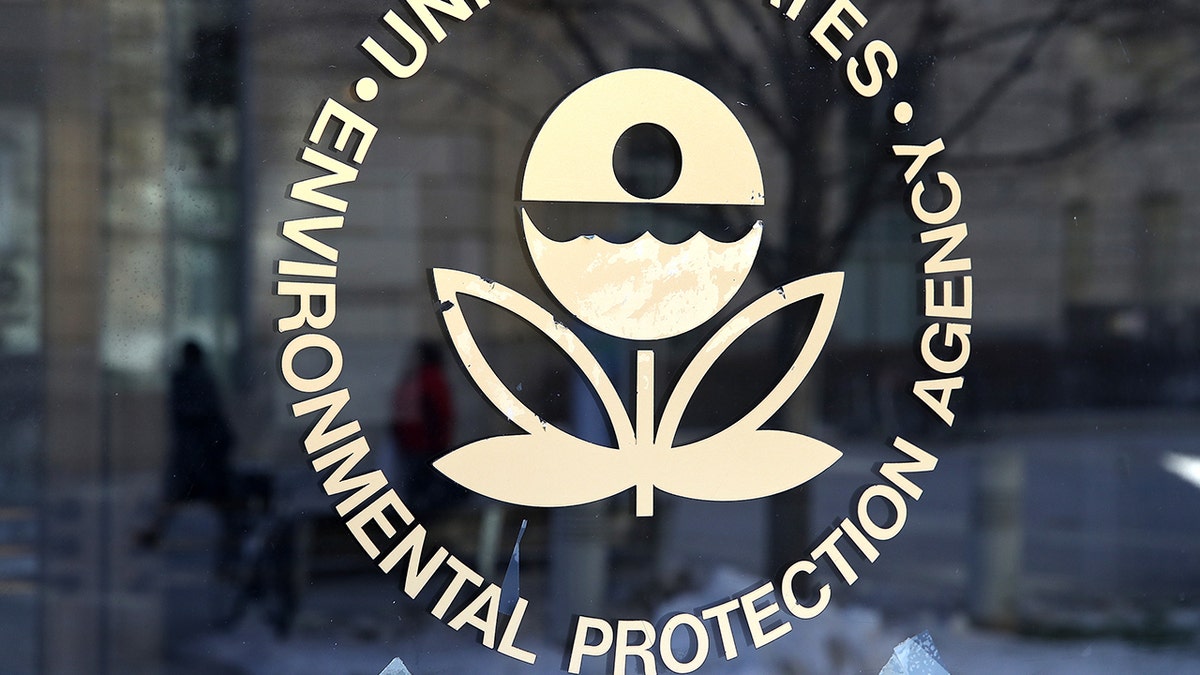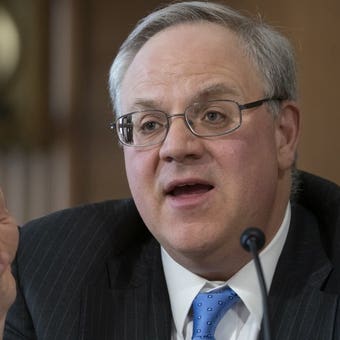Kudlow on EPA case: 'This is a massive, massive decision'
FOX Business anchor Larry Kudlow weighs in on the Supreme Court's decision pushing back against Biden on climate authority.
The Supreme Court’s ruling in West Virginia v. the Environmental Protection Agency, holding that the Environmental Protection Agency (EPA) cannot remake the U.S. energy sector without authorization from Congress, returns power to the American people instead of a bloated bureaucracy in Washington, D.C. As an added benefit, it will also prevent radical increases in energy costs — a welcome relief given 40-year high inflation.
The case arose from one of President Barack Obama’s attempts to bypass Congress. In his first term, Obama tried to get Congress to pass a cap-and-trade law to reduce carbon emissions.
Obama candidly admitted that "under my plan of a cap-and-trade system, electricity rates would necessarily skyrocket." Unsurprisingly, supersizing energy bills was unpopular with voters and their elected representatives. Thus, despite large Democratic majorities in both houses of Congress, the Senate never even voted on President Obama’s proposal. After the bill died, Obama ordered the bureaucracy to gin up new regulations to reduce carbon emissions on their own.
SUPREME COURT DEALS BIDEN CLIMATE AGENDA SERIOUS BLOW WITH EPA DECISION
In 2015, the Obama Administration’s EPA followed through with their Clean Power Plan (CPP). The Clean Air Act says power plants must use the "best system of emission reductions" to hold down pollution. This provision has long been interpreted to require individual power plants to use the best (feasible) technology to prevent pollution. The CPP reinterpreted that provision to allow the EPA to set statewide limits on carbon emissions. These limits were virtually impossible for fossil fuel power plants to achieve. The CPP thus effectively capped carbon emissions from fossil fuel power plants and pushed states to subsidize alternative energy sources like wind or solar.
The CPP rule was a big deal. The Obama Administration estimated it was equivalent to taking more than two-thirds of U.S. passenger vehicles off the road. Cap-and-trade couldn’t get through Congress, but, with legal gymnastics, the EPA decided it could impose a version of cap-and-trade on its own. EPA wanted to fundamentally reshape the energy market while bypassing approval from voters’ elected representatives.
Unfortunately, the federal government often operates this way. When I ran the Department of the Interior, I directed career attorneys to list all the department’s statutory duties specifically regarding climate change. There were only two: helping the Department of Energy with a report and writing another report on water issues. Nonetheless, leftist Members of Congress would often call on the Department to "stop climate change!" They wanted the Interior to transform America — without their doing the hard work of developing a consensus in Congress to pass a law. I would tell these Members of Congress to pass their law, and when they did, I would faithfully execute it. The Obama Administration’s EPA was not so restrained.
During the Trump Administration, the EPA replaced the CPP with a plan based on the traditional understanding of the law. Last year, a liberal panel of the D.C. Circuit Court of Appeals struck down the Trump Administration’s rule and ruled that EPA could impose cap-and-trade type policies.
The Supreme Court just rejected those arguments.
The America First Policy Institute filed an amicus brief, arguing that the Court should apply the major questions doctrine, which holds that agencies cannot issue regulations that have a major national impact (such as the CPP) without clear statutory authority. The Court agreed, ruling "it is not plausible that Congress gave EPA the authority to adopt on its own such a regulatory scheme … [a] decision of such magnitude and consequence rests with Congress itself, or an agency acting pursuant to a clear delegation from that representative body." In other words, creatively reinterpreting the law to discover sweeping grants of previously unknown authority doesn’t cut it.

FILE – The U.S. Environmental Protection Agency's (EPA) logo is displayed on a door at its headquarters on March 16, 2017 in Washington, DC. U.S. President Donald Trump's proposed budget for 2018 seeks to cut the EPA's budget by 31 percent from $8.1 billion to $5.7 billion. (Justin Sullivan/Getty Images)
This is great news for everyone who pays electricity bills, especially lower-income Americans, small businesses, and seniors on fixed incomes. The Biden administration’s EPA is drafting a cap-and-trade type rule that goes even further than Obama’s. Under the Biden Administration’s rule, "electricity rates would necessarily skyrocket." The Court’s ruling means the Biden Administration can only impose such regulations if Congress votes for them.
CLICK HERE TO SIGN UP FOR OUR OPINION NEWSLETTER
The ruling is even better news for American democracy. The Supreme Court’s decision returns power to the people. It means that the people make the rules through their elected representatives — not federal bureaucrats. Agency officials do not stand for election. They have no democratic mandate to impose sweeping societal changes unilaterally. The Court’s application of the major questions doctrine protects individuals, businesses, and others from agencies that act without legal authority. That authority rests with the people’s elected representatives in Congress.
CLICK HERE TO GET THE FOX NEWS APP
Unsurprisingly, the American people agree. Recent polling by Scott Rasmussen shows that by a 42% to 31% margin, Americans trust voters and their elected representatives more than government agencies and policy experts to establish major regulations. A plurality of Americans also believes the EPA should need approval from Congress before issuing regulations limiting greenhouse gasses.
The Court’s decision returns governing authority to the American people. This ruling protects democracy — not to mention Americans coping with soaring energy bills.
CLICK HERE TO READ MORE BY FORMER U.S. INTERIOR SECRETARY DAVID BERNHARDT












































